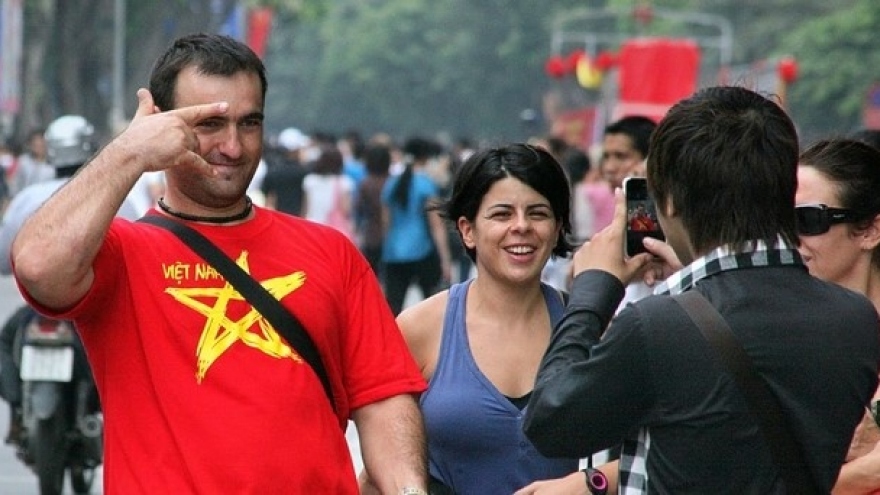Vietnam’s visa policy needs relaxing to attract more tourists: experts
To achieve the target of attracting 17-20 million international tourists in 2020, barriers to the Vietnamese tourism sector, including visa policy, should be removed, officials said.
 |
| Foreign tourists are seen disembarking from a luxury cruise ship at Chan May Port in Thua Thien-Hue Province in central Vietnam. Officials and experts said that barriers to the Vietnamese tourism sector, including visa policy, should be removed to attract more international visitors - Photo: VNA |
Vu The Binh, vice chairman of the Vietnam Tourism Association, said that most countries in the region are relying on visa policies as a tool to strengthen their tourism industries, so Vietnam should make the most of its visa policy to attract more foreign visitors, Nguoi Lao Dong newspaper reported.
Phung Quang Thang, director of Hanoitourist Travel Company, said that when tourists visit other countries, they focus on the convenience of entering and exiting that country, the country’s safety, and the quality and diversity of tourism products.
As such, visa waivers for visitors from several countries would pave the way for Vietnam to attract more international travelers.
As for countries not entitled to visa exemptions, visitors are still willing to follow procedures and pay for visas, but visa procedures should be simplified, he added.
Nguyen Tien Dat, vice director of TransViet Travel, took Indonesia as an example of applying a visa policy successfully, pointing out that three or four years ago, Indonesia welcomed the same number of international tourists as Vietnam, at 10 million.
However, since it relaxed its visa policy and started offering visa waivers to over 170 countries, Indonesia’s tourism growth has reached 60%-70% per year.
For his part, Nguyen Trung Thanh, director of Golden T Travel JSC, said that the visa policy is a major bottleneck for Vietnam’s tourism sector.
Phung Xuan Khanh, director of Tien Phong Travel Co., said that travel firms and tour operators have repeatedly proposed visa exemptions to the Vietnam National Administration of Tourism as, to date, the country has offered visa exemptions to citizens of only 24 countries, while Singapore and Thailand have allowed exemptions for citizens of a significant number of countries.
Visa exemptions offered to developed countries by Vietnam remain limited, though the number of visitors from these markets is on the rise, Khanh said, proposing offering more visa exemptions to citizens from developed nations or simplifying visa procedures to ease their travels to Vietnam.
Agreeing with this view, Dinh Ngoc Duc, director of the Tourism Marketing Department of the Vietnam National Administration of Tourism, said that to develop the tourism sector, it is necessary to create favorable conditions for tourists.
Duc also confirmed that the country has allowed visa exemptions for citizens from 24 countries and granted e-visas to people from 80 countries to attract more visitors.
However, Director of Golden T Travel JSC Thanh pointed out that even though Vietnam’s visa rules are gradually being relaxed, they are still complicated. For example, in Vietnam, foreign tourists are required to send their applications in advance and receive their visas at the border gate, while in other countries, tourists can complete all visa procedures upon arrival.
The director of Hanoitourist proposed that Vietnam offer visa waivers to citizens from Australia and Canada in the coming months as these source markets have great potential.
At a tourism promotion conference held in HCMC by the Japan National Tourism Organization (JNTO) on August 20, the chief representative of JNTO in Vietnam, Takahashi Ayumi, said that the number of Vietnamese tourists to Japan is seeing an upward trend.
In the first half of 2019, Japan welcomed over 250,000 Vietnamese holidaymakers, an all-time high in decades. The figure will amount to an estimated 500,000 visitors this year.
Ayumi said that Japan has recently attracted more Vietnamese travelers due to its relaxed visa policy, flight frequency increase and discounts on tourism products.

